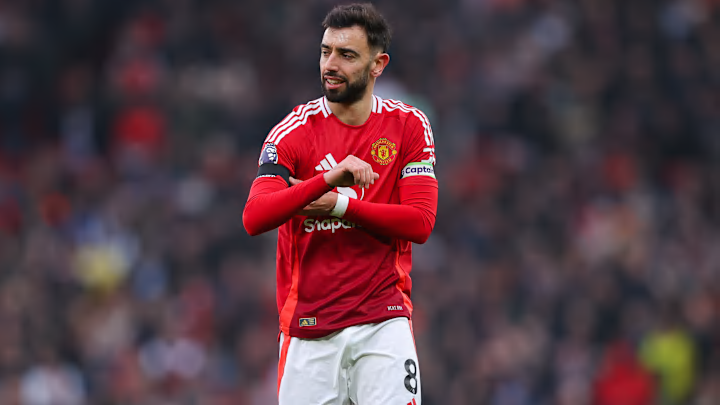The historic fall of Manchester United has stirred waves of discontent from both the stands and press conferences. Ruben Amorim, appointed to resurrect United after a disastrous start under Erik ten Hag, did not mince his words in his post-match criticism after their 3-1 defeat at home against Brighton. He drove home his point. "We might be the worst team in Manchester United's history." Although harsh, this was the statement of a painful reality facing the club.
Follow Playing for 90 on X (Twitter).
The worst start in 131 years
Manchester United is suffering from the worst start to a Premier League campaign at home for over a century. With six losses in their first 12 home games at the Theatre of Dreams, the record draws comparisons to the 1893/94 season, when the club was still known as Newton Heath. The team was relegated to the second division back then. While history does not always repeat itself, the parallels are hard to ignore.
Rubén Amorim knew the weight of history this decline carried. Taking the reins of a wounded giant, he didn't mince words on what it is: "Imagine what this means to the fans, what it means to me." This is an affront to a club built on glory and resilience.
Change of coach, same story

When Amorim was appointed in November, the expectation was that he would be the one to set the team on a proper course. Results have remained bleak, though: under his leadership, United has recorded only six wins in 15 matches across all competitions, and just two victories in their last nine games in the Premier League. The managerial changeover that initially offered promise quickly peeled away to deeper problems within the club that surpassed the touchline.
The young coach, with an outstanding record while working in Portugal, does not beat around the bush: the situation is really bad. He doesn't blame tactics and doesn't make promises impossible to fulfill: "I don't intend to change the system. I can do that, I know, but we must survive this moment. I am not naive; we must survive now." And then a quite simple vision sums it all up: Confront it and keep plodding upwards, wherever it might fall short of redemption.
Where did it all go so wrong?
The crisis at United is not a consequence of one single issue but rather an amalgamation of various factors. Replacing Erik ten Hag with Ruben Amorim, while necessary for many, exposed a team lacking tactical identity. The pieces aren't clicking, and the squad seems far from the cohesion expected of a European giant.
Besides, the pressure for immediate success represses every possibility of reconstruction. Amorim arrived to rejuvenate the squad, but it was with fragile bases. Full of individual talents, the group lacks leadership and constancy. On the field, this means games with bright starts that can easily end with frustration.

Weight of history, fan expectations
There are not many clubs steeped in tradition like Manchester United. From the legacy of Busby through Ferguson, their influence on history was one to go beyond any wins. At this juncture, it sounds like this rich heritage has actually been turned into a curse. Epic victories, improbable comebacks-many a thing has left the fans reeling as the team has its worst performance ever since Old Trafford came up.
Amorim knows this pain, and as blunt as it may sound, his statement does ring with the feelings of the fans. Admitting this team might be United's worst in history, he assumes that rare position in modern soccer: he confronts the problems head-on without sugarcoating them.
What does the future hold for Ruben Amorim and United?
At only 39, Ruben Amorim is one of the coming men of European coaching. His work in Portugal-where he won two league titles with Sporting and a League Cup with Braga-was proof of his potential. But the challenge at Manchester is of a wholly different scale. Now he finds himself at the helm of a club that cannot afford to survive.
The coach himself acknowledges the uphill battle: “We have a new coach who’s losing more than the previous one. I’m fully aware of that.” This statement reflects his self-awareness but also his belief in the project. For Amorim, success won’t come overnight. The current priority seems to be survival.
Can United rise from rock bottom?
History stands as a reminder that Manchester United has always gotten a way out during crises, whether rebuilding from post-Munich to post-Ferguson. However, the context presently is very different. The Premier League is highly competitive at this point, and opponents wait for an open moment to run down any opponent showing weakness.
United have to be rebuilt by Ruben Amorim, but unmerciful pressure to produce immediately makes it difficult. And in soccer, time, the one thing that is so precious, may not exactly be on his side. The fans, now increasingly impatient, want changes right away, and the board is only too aware of the possibly disastrous implications of continuing along this path without exorcising the causes.
